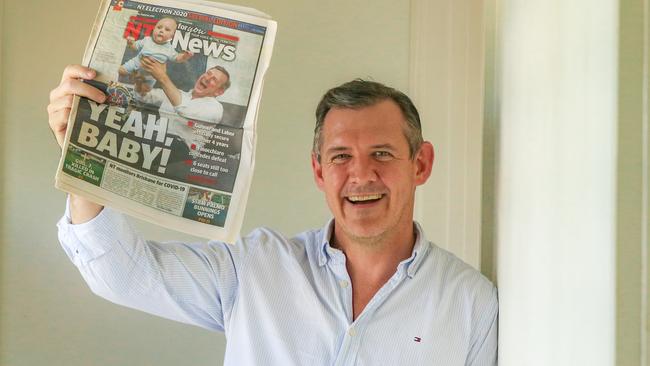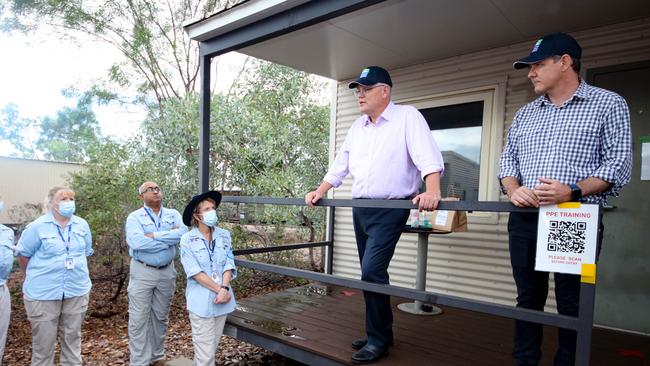Chief Minister Michael Gunner has opened up on his priorities post-pandemic, as he prepares to mark one year since being returned to power
Speaking exclusively to the NT News, Mr Gunner says long-term goals such as breaking the cycle of youth crime and boosting the Territory’s economic resilience were major priorities moving beyond the pandemic.
And the Chief says he has no intentions to leave office before the next election, due in 2024.
“It’s an absolute privilege, it is my intention to keep serving Territorians,” Mr Gunner says.
“I’ll serve Territorians as long as I can.”
When he’s asked what his legislative agenda is going to look like emerging from the pandemic, Mr Gunner is keen to talk about breaking the cycles which have dominated the Territory for generations.

“I think as a government, last term and this term and ongoing, we’re genuinely tackling those social and economic cycles of dysfunction,” he says. “I think we’re building on the work that Clare (Martin) and Hendo (Paul Henderson) did, but we’ve genuinely done some pretty ballsy stuff, like we’re the first government to have brought in the floor price.
“We’ve done some really big significant things to tackle the long term endemic problems in the Northern Territory.”
Mr Gunner points toward falling numbers of substantiated child abuse cases being dealt with by Territory Families. His government intends to raise the age of criminal responsibility to from 10 to 12 years old – as recommended by a Royal Commission – but only once rates of juvenile crime have come down.
“You’ve got to make sure victims come first, and then you’re going to break the cycle, so that’s the outcome I’m after.
“One day there won’t be a Labor government, there might be a CLP government, next all these policies get knocked off.
“So I feel if I’m going to prove (raising the age) to Territorians and have it last our term and last out future terms … it’s got to obviously be successful.”

A national push to raise the age to 14, he says he’s not yet interested in and his government pushing for a less “top-down approach” in tackling issues in Indigenous communities.
“The Intervention was very much about rolling into town and saying this is how you’re going to do it.
“Our local decision making policies are very much about saying, yeah there are challenges, but we can’t do this unless the communities are on board.
“We have to find a way to make sure locals are part of the solution.”
At the same time, Mr Gunner says it’s his goal to eliminate the Territory’s reliance on the “sugar hit” of one major project at a time.

He says a cosy yet “transactional” relationship with Prime Minister Scott Morrison, forged in national cabinet, will help this happen.
“On the economic side – and this is going to boil down a lot of work into a slogan in a sense – you’ve got to have more jobs in more places,” he says.
“The data centre that we’re working on, the Sun Cable that we’re working on, the Seadragon that we’re working on, space … different sectors all contributing jobs.
“That’s obviously a difficult thing to do overnight, but that’s what we’re working on for four or five years, to get more jobs in more places.”


Add your comment to this story
To join the conversation, please log in. Don't have an account? Register
Join the conversation, you are commenting as Logout
‘It’s a coup’: ‘Terminated’ Alice Springs principal’s explosive allegations
The former principal of troubled Alice Springs school is alleging he was sacked after standing his ground over a proposal which is going to be ‘a sh-t show’.
Gaps in Darwin maternity services highlighted through stories of loss
Darwin families are making plans to leave the NT as shocking testimonies reveal gaps in maternity care, with some mothers seeking help four times before tragedy struck.